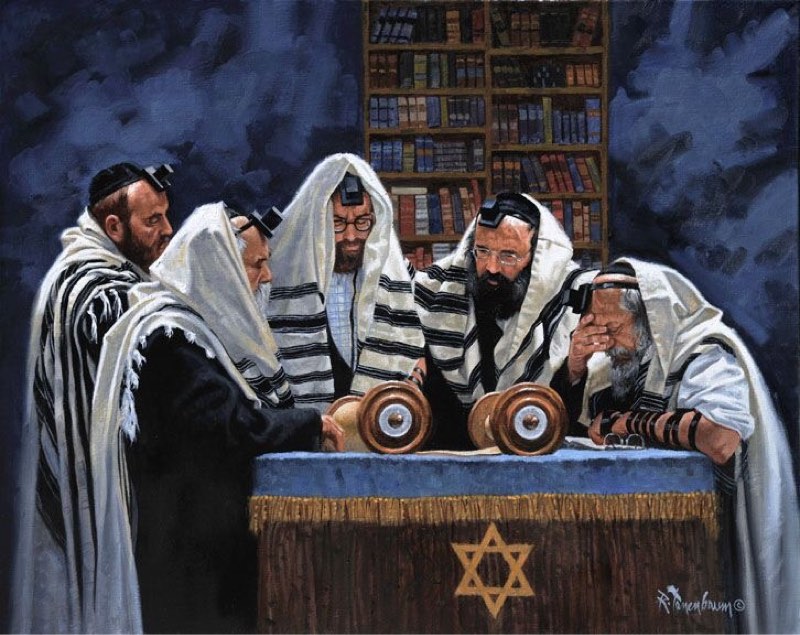The Departure of Hagar and Ishmael: Analyzing Biblical Text and Midrash Interpretations
According to biblical accounts, Ishmael is described as a teenager at the time he and Hagar depart from Abraham's household. In contrast, Islamic tradition presents him as an infant or young child whom Hagar nurses as they leave Abraham's residence.
Was Ishmael placed on Hagar's shoulder by Abraham in Genesis 21 before their departure? Was Ishmael able to walk when Abraham sent him and his mother away? How does the Midrash explain it?
Midrash is a term used in Jewish tradition to refer to a method of interpreting biblical texts. It involves exploring and expanding upon the stories, laws, and teachings found in the Hebrew Bible through storytelling, commentary, and analysis. Midrashic interpretations often seek to uncover deeper meanings or lessons within the text and can vary widely in style and content.
The Midrash provides an interpretation of the events in Genesis 21. According to the Midrash, Ishmael was indeed placed on Hagar's shoulders, and this act is seen as a demonstration of Hagar's devotion to her son. However, the Midrash also acknowledges the inconsistency between Ishmael's age and his physical abilities, suggesting that the text may have been altered or fabricated to fit the narrative.
According to Rashi's commentary, Ishmael was unable to walk at the time, potentially due to an evil eye cast upon him by Sarah that caused him to become ill. Rashi suggests Abraham placed the teenage Ishmael on Hagar's shoulder along with their supplies because he was too feeble to walk on his own.
So in summary, while Rashi argues Ishmael was placed on Hagar's shoulders because he was too ill to walk, this explanation is debated given Ishmael's age and other details in the text and Midrash. The passage is ambiguous about how Hagar and Ishmael departed together. Alternative interpretations suggest Ishmael was old enough to walk, even if he required some support from his mother.
A passage from “Hard Sayings of the Bible” states:
A number of commentators have insisted on the fact that Ishmael was placed on the shoulders of Hagar when she left. This would imply that at the time the boy was a mere infant who needed to be carried by his mother. Then in Genesis 21, verse 15, he is spoken of as being cast or placed under a bush.
Now after these interpreters have reached these conclusions about Ishmael being a mere infant, they go on to declare that this assessment is in conflict with Genesis 16, verse 16, 17, verse 25, and 21, verse 5, where the boy seems to be at least thirteen or fourteen years old, and that this is the mark of multiple sources, for the texts were not edited as carefully as they should have been.
What is the explanation for this argument?
The argument you've mentioned is centered around the apparent discrepancies in Ishmael's age in different parts of the Genesis narrative. The confusion arises from the portrayal of Ishmael as both an infant and a teenager in various passages.
According to Genesis 16, verse 16, Abraham was 86 years old when Ishmael was born. By the time Isaac was born, Abraham was 100 years old, making Ishmael approximately 14 years old (Genesis 21, verse 5). The event of Hagar and Ishmael being sent away occurs after the weaning of Isaac, which could imply that Ishmael was between 17 and 19 years old at that time.
The passage you've cited suggests that some commentators interpret the text as if Ishmael were an infant during this event, based on the description of him being carried on Hagar's shoulders and placed under a bush. This interpretation could be seen as conflicting with the earlier texts that indicate Ishmael's teenage years.
The explanation for this discrepancy is a subject of debate among scholars. Some propose that it might be due to multiple sources or redactions in the text, which were not perfectly harmonized. Others suggest that the narrative is not strictly chronological or that the descriptions are figurative rather than literal. It's also possible that the term "child" or "boy" used in the text does not necessarily imply infancy but could simply refer to a son.


